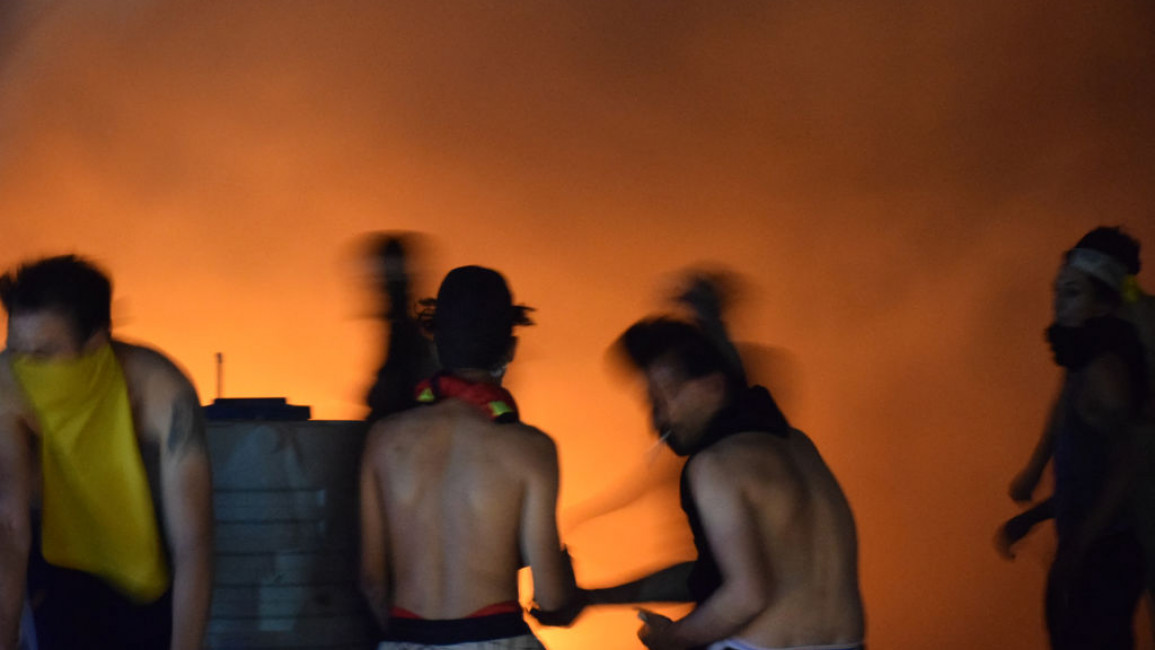Death toll rises to 94 in Iraq Covid unit fire
A fire that enveloped a Covid isolation unit in Dhi Qar province, southern Iraq killed 94 people, the provincial health directorate said in an updated toll on Tuesday.
Some 39 bodies have been identified and handed over to their families, a source at the Dhi Qar Forensic Science Department told AFP.
The deadly Monday evening blaze at Al-Hussein Hospital in the provincial capital Nasiriyah, which medics said was fuelled by the explosion of oxygen canisters, was the second such fire in Iraq in three months.
"Medical teams and relatives of victims are finding it difficult to identify the rest of the corpses," the source said, adding that the death toll might rise further with more bodies feared buried under the rubble.
The ward had space for 70 beds.
Outside the hospital, dozens of young demonstrators protested.
"The perpetrators must be deterred... The state must take the necessary measures... to confront the corrupt," a young protester told AFP early Tuesday.
He said those responsible must be held "accountable... in transparent investigations that show people that it (the state) is serious about putting an end to these tragedies".
In a Tuesday tweet, Iraqi President Barham Salih blamed the "catastrophe" at Al-Hussein Hospital on "persistent corruption and mismanagement that undervalues the lives of Iraqis".
Salih recalled an April fire at a Baghdad Covid-19 hospital that killed 82 people and injured 110. It too was sparked by the explosion of badly stored oxygen cylinders.
The April fire triggered widespread anger, resulting in the suspension and subsequent resignation of then health minister Hassan al-Tamimi.
Iraq – whose oil-dependent economy is still recovering from decades of war and international sanctions – has recorded more than 1.4 million coronavirus cases and more than 17,000 deaths.
Much of the country's health infrastructure is dilapidated and investment in public services is hamstrung by endemic corruption.



